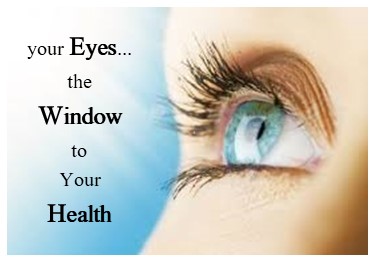Comprehensive Eye Exams
The eye doctors at Heritage Eye, Skin & Laser Center value comprehensive eye exams as an essential tool in providing the best vision care possible and are important — regardless of your age or your physical health. A comprehensive exam not only determines how well you can see, but it can also help our doctors identify potential eye diseases and medical conditions throughout the body. In fact, eye doctors are often the first health care professionals to detect chronic systemic diseases such as high blood pressure and diabetes. An eye exam can detect vision problems, eye disease, and general health problems before you are aware a problem exists.
During a comprehensive eye exam, our doctors do much more than determine your prescription for eyeglasses or contact lenses. We will also assess how your eyes work together as a team, and evaluate your eyes as an indicator of your overall health. Even if you think you see perfectly, you should still have you eyes examined regularly. Most eye diseases are treatable, and some, like macular degeneration and glaucoma, can be carefully managed if identified early on.

“There is no question the eye has always been the window to the body,” says Dr. Kenneth Miselis,
Medical Director and Board Certified Ophthalmologist at Heritage Eye, Skin & Laser Center.
How Often Should I Have An Eye Exam?
Eye examinations are an important part of health maintenance for everyone, children through seniors, whether or not you see well. The eye doctors at Heritage Eye, Skin & Laser Center recommend a dilated eye exam according to your age and health of your eyes:
Adults:
Adults should have their eyes examined every other year before 40, unless otherwise recommended, and every year after 40.
Children:
Children should have their eyes examined every two to five years starting at age 5. Eye exams for children play an important role in ensuring normal vision development and academic achievement. Because vision is closely linked to the learning process, children with undetected vision problems often will have trouble with their schoolwork. Many times, children will not complain of vision problems simply because they don’t know what “normal” vision looks like. If your child is performing poorly at school, call our office to schedule an eye exam to rule out an underlying visual cause.
 What Eye Conditions Will The Doctor Be Checking For?
What Eye Conditions Will The Doctor Be Checking For?
In addition to evaluating your eyes for glasses and contacts, the doctors here at Heritage Eye, Skin & Laser Center in Stockton will be checking your eyes for eye diseases and other problems that could lead to vision loss. During a typical comprehensive eye exam, your pupils will be dilated so that we can see the retina in the back of the eye. Among the many steps performed as part of a comprehensive exam, you may be tested for:
- Muscle function
- Visual acuity
- Binocular vision skills
- Peripheral vision
- Eye pressure
- Color vision
- Overall eye health (pupil, optic nerve, cornea, lens, retina)
- Refractive error
This refers to nearsightedness, farsightedness and astigmatism. Refractive errors are corrected with eyeglasses, contacts or refractive surgery. - Amblyopia
This occurs when the eyes are turned or when one eye has a much different prescription than the other. The brain will shut off the image from the turned or blurry eye. Left untreated, amblyopia can stunt the visual development of the affected eye, resulting in permanent vision impairment. Amblyopia is often treated by patching the stronger eye for periods of time. - Strabismus
Strabismus is defined as crossed or turned eyes. The examiner will check your eyes’ alignment to be sure that they are working together. Strabismus causes problems with depth perception and can lead to
amblyopia. - Eye teaming problems
Even if your eyes appear to be properly aligned, it’s possible they do not work together efficiently as a team. Such binocular vision problems can cause headaches, eye strain and other problems that can affect reading and other near vision tasks. - Focusing problems
Focusing problems can range from incompletely developed focusing skills in children to normal age-related declines in focusing ability (presbyopia) among older adults. - Eye diseases
Many eye diseases, such as glaucoma and diabetic retinopathy, have no symptoms in their early stages. Your eye doctor will check the health of your eyes inside and out for signs of early problems. In most cases, early detection and treatment of eye diseases can help reduce your risk for permanent vision loss.
What Medical Conditions Are Visible In The Eye?
During a dilated eye exam, eye doctors can detect early signs of medical conditions and diseases by looking at the blood vessels and the retina in the eye:
- Stroke
- Lupus
- Aneurysms
 Vascular Disease
Vascular Disease- Thyroid Disease
- Sarcoidosis
- Diabetes
- High Blood Pressure
- Heart Disease
- High Cholesterol
- Sickle Cell Anemia
- Jaundice of the Liver
- Lyme Disease
- Medication Toxicity
- Multiple Sclerosis
- Myasthenia Gravis
- Sexually Transmitted Diseases
- Certain Cancers and Tumors
- Dementia-Related Changes
- Autoimmune Diseases & Infections
- Certain Genetic Disorders
- Vitamin A Deficiency
Quick Links
Questions?
[formidable id=12]
